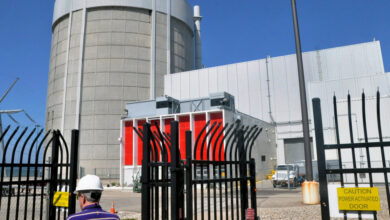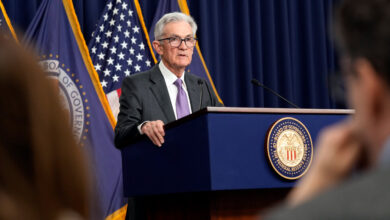Jobs Data Revives Wall Street’s Hopes for a Rate Cut

Just as Wall Street appeared to come to terms with the idea of high interest rates sticking around for longer, a cooler-than-expected jobs report on Friday brought the idea of rate cuts back into the conversation.
The Labor Department reported that job and wage growth in April came in lower than economists had expected, a shift after months of piping-hot labor market reports. The findings rekindled hopes that the Federal Reserve — which has been looking for signs that interest rates are slowing the economy — may yet cut rates before the end of the year.
“This is the jobs report the Fed would have scripted,” said Seema Shah, chief global strategist at Principal Asset Management.
The S&P 500 shot up more than 1 percent on Friday, on course for its best day in more than two months. The Russell 2000 index of smaller companies that are more sensitive to the ebb and flow of the economy also rose, up roughly 1 percent for the day and also on course to rise for a second consecutive week.
Stock investors are sensitive to rapid changes in interest rates, and the two-year Treasury yield tumbled from over 5 percent on Tuesday to 4.8 percent on Friday, a big move in a market that is typically measured in hundredths of a percentage point.
Investors had started the week fearful that strong economic data and stubborn inflation would push the Fed to keep interest rates elevated for most of the year and potentially even warrant officials to move them higher.
Investors had already welcomed comments on Wednesday from the Fed chair, Jerome Powell, who said it was “unlikely” the central bank would raise rates further, despite earlier intimations from some policymakers that an increase might be necessary given the strength of the U.S. economy this year.
Investors now expect the Fed to cut rates at least once and potentially twice this year, with bets that the first cut will come in September, earlier than the November expectation at the start of the week.
Investors’ optimism for falling rates also spurred a sell-off in the dollar, a welcome sign for countries around the world whose currencies have been pressured by unexpected dollar strength this year. Expectations that interest rates will come down tends to weigh on a currency as investors look for more lucrative places to park their money.
Some investors still cautioned against reading too much into Friday’s jobs data.
Jason Pride, a strategist at the asset management firm Glenmede, said investors needed to see more progress before they could expect imminent rate cuts. Another hot jobs or inflation report could be enough to keep the Fed from considering any cuts this year.
“One month does not make a trend, but today’s jobs report likely gives the Fed some much-needed assurance that higher rates may be starting to do their job,” Mr. Pride said.



